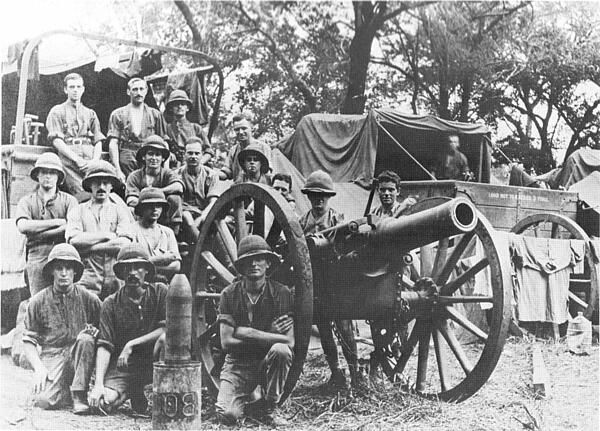South Africa and World War One
World War One dramatically changed relationships between South Africa and Europe. On the outbreak of war in August 1914, the country was split between those who supported the war and those who were deeply anti-British. Only 12 years before they had fought against the British in the Boer War and many rejected British rule. Yet, one out of five white males enrolled in the army - a higher proportion than any other dominion, thus making South Africa’s contribution to the Allied victory invaluable.
However, the prime minister of South Africa, General Louis Botha, was determined to show his loyalty to the British. Botha and Defence Minister, Jan Smuts, hoped that the war would result in a unified South Africa. Both Botha and Smuts had fought for increased unity with the British after the Boer War so they gave their full support to the Allies, offering 6,000 troops for service in Europe.
Smuts founded the South African Defence Force during World War One.. His first task was was to suppress a rebellion headed by pro-German forces and led by Colonel Maritz. These rebels remembered the support offered to them by Germany in the Boer War and were very anti-British. Bortha fought the rebels in a campaign organised by Smuts who was Minister of Defence. Smuts later wrote:
“He lost friendships of a lifetime, friendships that perhaps he valued more than anything in life. But Bortha’s line remained absolutely consistent. No one else in South Africa could have stuck it out. You wanted a man for that.”

General Smuts led a conquest of German East Africa in 1916 after Amuts and Louis Botha had conquered German South West Africa.
He was criticised for the tactics he used against the Germans. His attempt to outflank the enemy rather than taking them on in full frontal assaults lengthened the campaign and increased the threat of disease.
In February 1915 the rebels surrendered. Bortha knew that to prevent any further rebellion he would have to act moderately. Thus he only executed one of the leading rebels. His campaign in German South West Africa was “one of the neatest and most successful campaigns of the Great War”. (Falkus) Smuts was later praised by Lloyd George for being a man “of rare and fine gifts of mind and heart”.
Despite their hopes, Bortha and Smut’s plans for South Africa’s hegemony over the entire southern part of Africa was only partially achieved. World War One left South Africa with greater international recognition and a stronger sense of nationalism.
See also: Australia and World War One
MLA Citation/Reference
"South Africa and World War One". HistoryLearning.com. 2026. Web.
